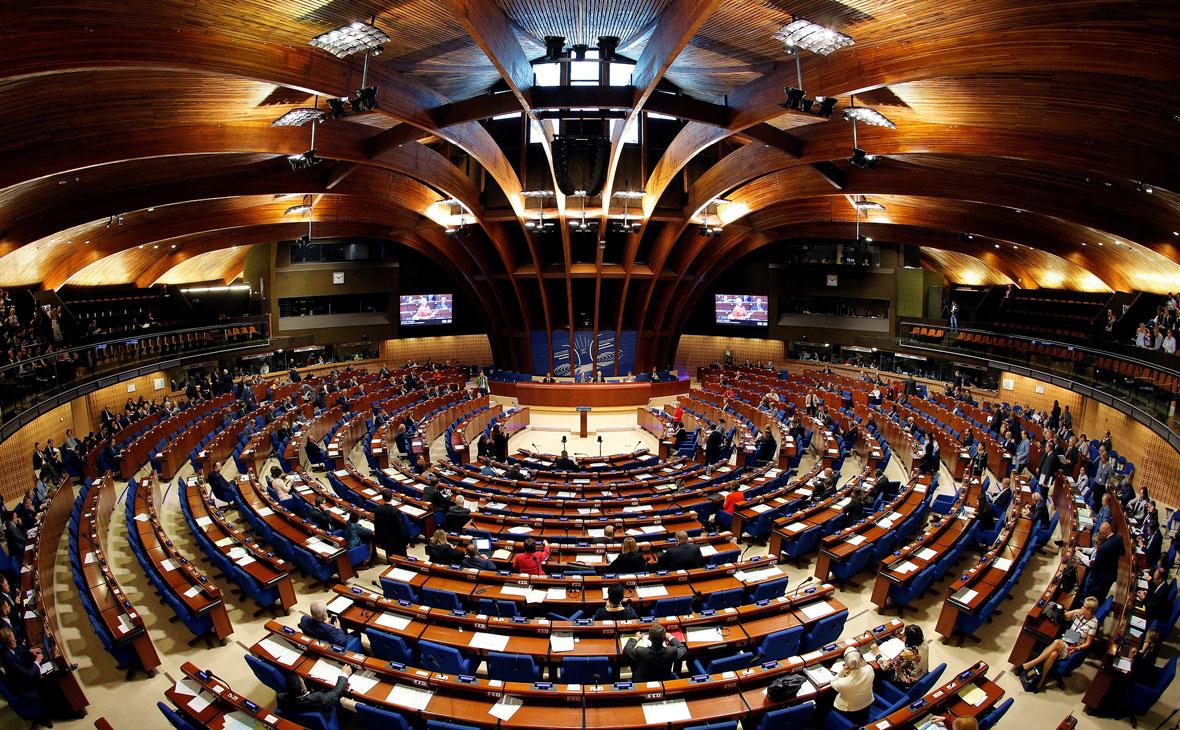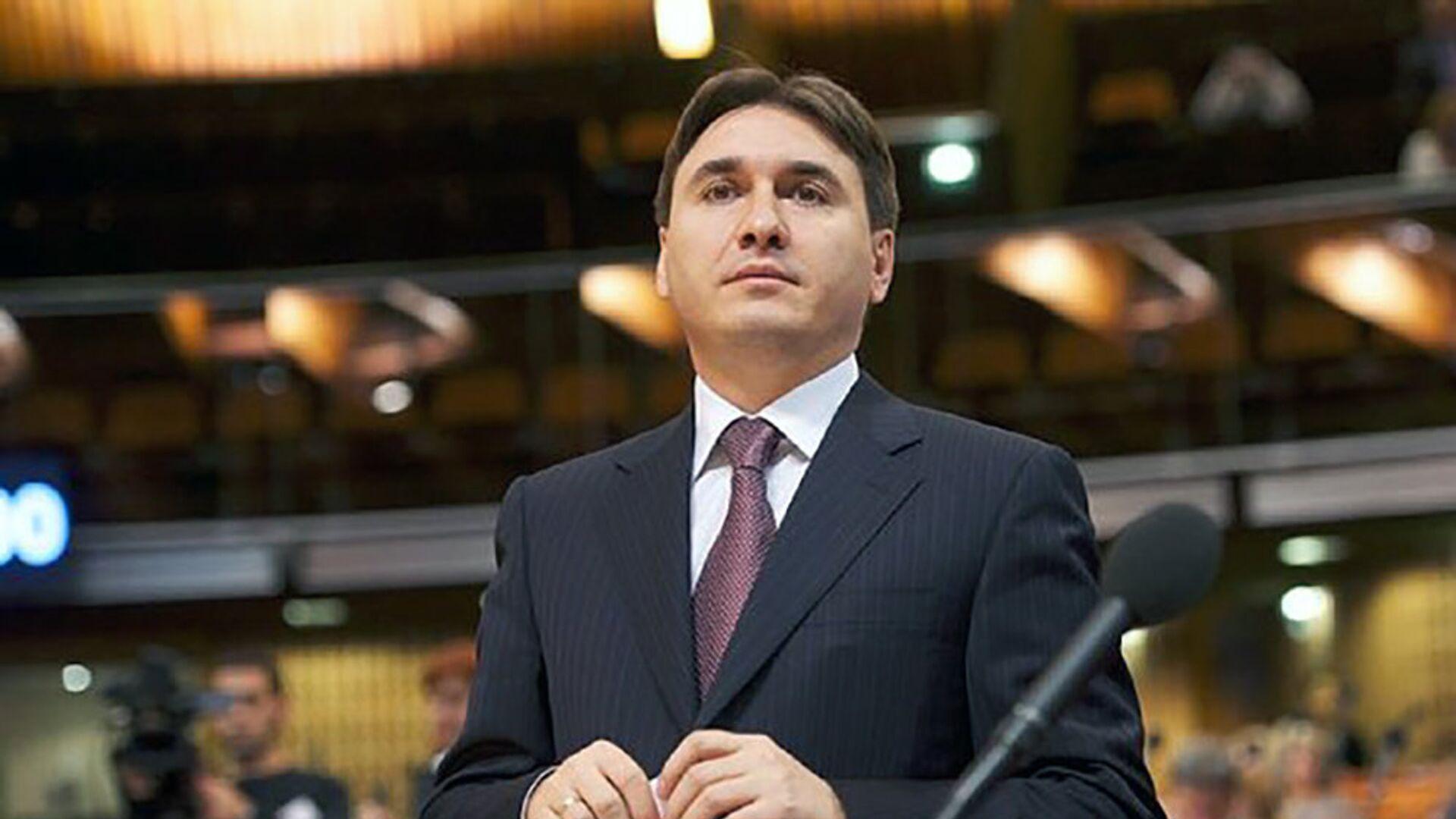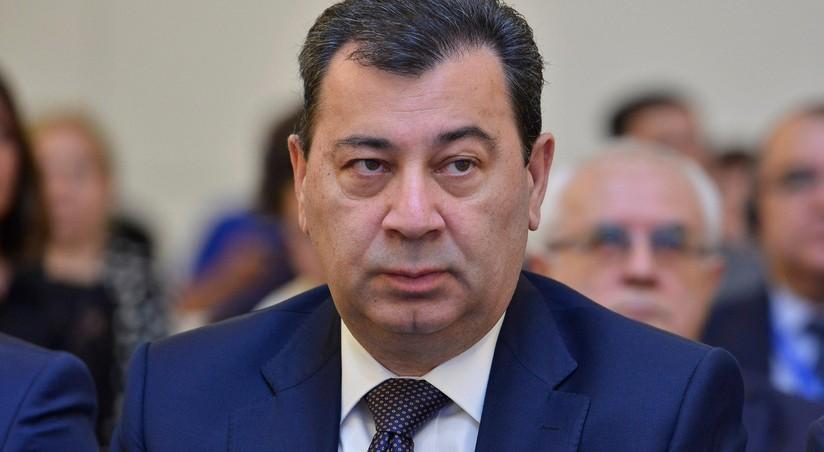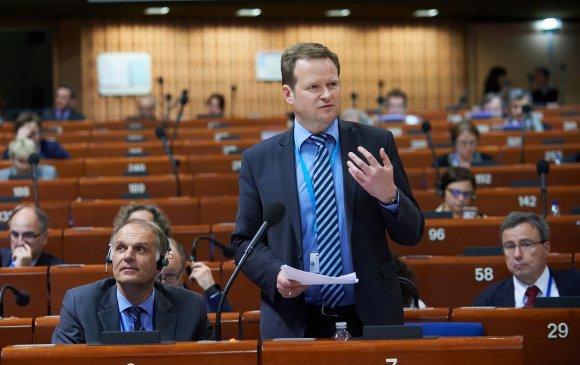PACE's doubletalk policy as a striking example of institutional degradation Baku leaves the field of European experiments
On January 24, the Azerbaijani delegation suspended its work in PACE, the Parliamentary Assembly of the Council of Europe. The suspension is indefinite, which is a serious and perhaps final warning. Against the background of the global trends of the collapse of international organisations, Azerbaijan's withdrawal from PACE and the Council of Europe no longer seems impossible.
The current hypocritical criticism of Azerbaijan by the PACE seriously distorts the reality. Baku is making it clear to the West that its political course is unacceptable. PACE's activities vividly illustrate how the West has turned international organisations into buffoonery.
Who wanted a fight?
We should begin by analysing the PACE incident itself, not the most serious European body. Baku did not inflame the situation, it worked cold-bloodedly for years under difficult circumstances. Irresponsible elements regularly made attacks against Azerbaijan in PACE, and for the first time in 2006, an attempt was made to strip Azerbaijani delegates of their powers!
But the point of diplomacy has always been to continue negotiations and put forward arguments even in such circumstances, despite the fashion that has developed in recent years, even among high-ranking politicians, to become hysterical under the guise of "moral outrage". Yes, diplomacy should not forget other means, but they will not work without a parallel political process.

The instigators of the current scandal were not the Azerbaijani delegates, although the head of the delegation, Samed Seyidov, was accused by the pro-Western media of leaving the PACE no choice with his harsh speech. Indeed, how can he defend his country's interests when self-proclaimed apologists for democracy are giving it lessons in life? But let's leave the irony aside, both Seyidov's speech and the delegation's collective statement on temporary withdrawal from PACE came at the last moment, when it was clear that escalation was inevitable. A preventive blow was dealt when the opponents gathered to question the mandates of Azerbaijani MPs and started talking about depriving Azerbaijan of its right to vote. There have been rumours about this in the media since the autumn, and in the last few days, there has been a lot of talk about this in some Armenian revanchist media.
Armen Gevorgyan knows a lot about "human rights" and "democracy"
Responding to this pressure was necessary, although PACE has always been a marginal organisation. But PACE is only a trial run in a much bigger campaign of pressure on Azerbaijan. The imperialist interests of a number of world powers (France is only one of them) and the activity of some revanchist circles in Armenia and the Armenian diaspora, which try to fit their programme into the general "democratic" policy of the West, are also linked to this. This is done quite openly. For example, at the autumn session of the PACE, Armen Gevorgyan, a member of the Armenian delegation, eloquently stated their position: "Further unpunished membership of Azerbaijan and Turkey in the Council of Europe will only mean the ideological death of this organisation". This man is from the "early days", the pre-Pashinyan era, who worked for many years in the Armenian security services when they were involved in the uptaking of the occupied territory of Azerbaijan after large-scale ethnic cleansing. Just as he does not advertise the fact that he held high positions in the team of the most corrupt Armenian leaders linked to the Karabakh separatists, he is silent about this in the PACE. In general, Armen Gevorgyan knows a great deal about "human rights' and "democracy".

However, we are being unfair to the revanchists. The current leadership in Yerevan sometimes tries to ride this wave. Pashinyan regularly utters maxims such as 'Democracy is Armenia's main brand'. In other words, if the West does not want to support Armenian great power expansionism and separatism as such, it is possible to cloak these projects in fine words about democracy and human rights, without forgetting references to civilisational, religious and racial confrontation. The image of "small, Christian, European, democratic, poor Armenia suffering at the hands of huge, Mohammedan, Asian-Turkic, despotic, oil and gas-rich Azerbaijan" is all that is needed for any Western politician of any political persuasion to find the necessary triggers. The delusional nature of such perceptions is obvious, but one overestimates European politicians, especially in the PACE, if one thinks that they too see the absurdity of this scheme.
Despite the shallowness of these Western representatives, we should not ignore their actions and rhetoric. One of the functions of PACE resolutions and other similar organisations is to legitimise revanchism and put it on the global agenda. Democratic jihad, as it were.
And if the antics against Azerbaijan are tolerated in PACE, the next blow will be struck in a more serious place. After all, the Assembly is a kind of "European testing ground". And before turning up the heat on Baku on more serious platforms, sending plainclothes observers to the Armenian-Azerbaijani border or sending military aid to Armenia, the EU-NATO governments will first see how Azerbaijan reacts on less important issues.
Metamorphosis of European liberalism
The current incident marks the end of the evolution of PACE in general and its policy towards Azerbaijan in particular. Formally founded in 1949, PACE in its current form is a product of the West's victory in the Cold War. At the time, after 1991, it looked like a club where coexistence on the continent would be discussed in a civilised manner and the West would gently cajole the former socialist countries to adopt Western standards.
Of course, red flags appeared very soon. Belarus was kicked out of the door in the 1990s, becoming an example of how such ostracism only creates international problems. In recent years, PACE has become openly confrontational. It began to take an openly hardline stance towards its members. This belligerence seemed strange in an organisation whose raison d'être was dialogue despite all. Having caused two world wars, Europe had for some time been trying to prevent the possibility of a third. PACE was a manifestation of this aspiration for a better world, but now Europe has moved on to other heights - increasing shell production is on the agenda - so PACE has lost its relevance in this new world.
In parallel with this change, PACE's policy towards Azerbaijan has also mutated. It cannot be said that it was always positive. There were enough disputes and scandals, but they were temporary, episodic phenomena. But in the last four years, PACE has relentlessly attacked Azerbaijan, showing striking examples of hypocrisy. While criticising Russia for supporting separatism in eastern Ukraine since 2014, PACE and its representatives have at the same time become increasingly active in opposing Azerbaijan's attempts to restore its territorial integrity. In 2015, when PACE was just testing its new practice of depriving a country of its right to vote, the head of the Azerbaijani delegation, Seyidov, noted: "By voting against Russia, PACE members have once again allowed double standards. How is it possible to condemn separatism and occupation in one case and remain silent when it comes to Armenia? We do not understand such a policy. The PACE vote has once again shown that this organisation has become an arena of geopolitical struggle".

We should stress that despite the existence of contentious issues even earlier, PACE (and other structures of the Council of Europe) started to exacerbate the situation in 2020. For example, PACE observers demanded an immediate cessation of hostilities against the occupiers at the moment of the defeat of Armenian formations in the occupied regions of Azerbaijan on 28 September 2020. Then the line went on. In March 2023, the PACE Commission called for the "unblocking of the Lachin Corridor". In June, PACE presented a report on the need to restore "unhindered movement along the Lachin corridor" and asked the Committee of Ministers of the Council of Europe to send a mission to Lachin. In other words, the Assembly pretended not to understand the game being played by the Armenian nationalists in the region, who have banned supplies to the population of the Karabakh region from the rest of Azerbaijan in order to force Baku to open the Lachin road for military traffic between the separatist-controlled part of the country and Armenia. Instead, the author of the PACE report said that the "Lachin corridor" was being blocked by "grey wolves". He had not seen them himself, but a British MP had told him about them. On July 31, PACE president Tiny Cox called for a fact-finding mission to be sent to the Karabakh region of Azerbaijan as soon as possible "to assess the situation of Armenians as a result of the lack of access to free and safe movement along the Lachin corridor".
The PACE also lashed out at Azerbaijan for the September 20-23 operation in which the Azerbaijani military neutralised the remnants of armed separatist formations with a minimum of civilian casualties. Nevertheless, in its resolution and recommendation of October 12, PACE again accused Baku of a series of violations, including "ethnic cleansing". Once again, PACE was unwilling to address the role of Armenian nationalists in the mass relocation of the Armenian population. Instead, the PACE threatened to strip the Azerbaijani delegation of its mandate.
In other words, in recent years the PACE has consistently started to play on the side of the revanchist circles of the Armenian establishment. All other claims by PACE members - such as not inviting observers to the presidential elections - are mere pretexts. The United States never invites observers from a similar organisation - the OSCE - to its elections. And no one is trying to exclude the United States from the OSCE.
What is left of the international system?
The degradation of the PACE is evident both in the primitiveness of the current diplomatic one-upmanship and in the personalities involved. Let us recall that the author of the current initiative to "squeeze Azerbaijan" is the German MEP Frank Schwabe, the leader of the Socialist Group in the PACE. Considering this person's background, it is not sure that he understands the material part of the problem. This German parliamentarian is not involved in any strategic projects. It is no surprise that his biography - like the biographies of many Western politicians of the new generation - is a typical life of a party activist. His work record shows only a job in the office of a couple of MPs and no education. Schwabe, like some other German politicians, was never able to finish university, despite his best efforts. But he became famous for ordering his office to monitor the articles about him on Wikipedia and delete information about his lack of education! In general, the initiative to oust Azerbaijan came from a politician whose very stay in power clearly characterises the problems with the current political system and foreign policy of a number of liberal-democratic countries. How can people whom a reasonable person would not even trust at a petrol station end up in parliament? And how is it possible for this national parliament to then send them to an international organisation?

Of course, the degradation of personnel is only a shadow of the institutional degradation. Cynically exploited by the superpowers, international organisations have become a circus. So don't be surprised by the absurdity of the PACE. After rejecting the mandates of Azerbaijani deputies who had already left, it recognised the mandates of deputies from the non-existent German parliamentary group.
It would be funny if it were not so sad. After all, what happened to PACE is only a small illustration of how international organisations tend to collapse. PACE is the saddest example. In spite of its initial impetus, no one seems to feel sorry for it today. But the OSCE, the WTO and the UN are also beginning to crumble. After the end of the Cold War, the superpowers of both West and East, through selfishness and hypocrisy, emasculated the international organisations and legal regimes created to keep peace during the years of confrontation.








